MercoPress. South Atlantic News Agency
Economy
-
Monday, August 18th 2025 - 21:38 UTC
Lula and Noboa discuss trade beyond ideological discrepancies

Brazilian President Luiz Inácio Lula da Silva on Monday welcomed his Ecuadorean colleague Daniel Noboa at the Planalto Palace for a meeting during which both leaders set aside their ideological discrepancies and focused on strengthening trade and cooperation, particularly after Washington's tariffs.
-
Saturday, August 16th 2025 - 10:55 UTC
YPF case: NY Court of Appeals rules in favor of Argentina

The Second Circuit Court of Appeals in New York has suspended a lower court's order that required Argentina to transfer 51% of its shares of the state oil company YPF to a New York bank. This overruling of Judge Loretta Preska's Sept. 2023 order is a significant win for Buenos Aires, as it allows the South American country to appeal the $16 billion judgment without having to surrender a key state asset
-
Saturday, August 16th 2025 - 10:06 UTC
Belt and Road Initiative: Colombia and China sign key trade deal
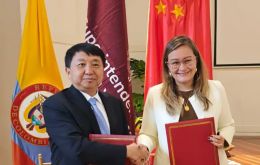
Colombia's Superintendency of Industry and Commerce (SIC) and China's State Administration for Market Regulation signed a memorandum of understanding to strengthen trade cooperation and advance the South American country's participation in the “Belt and Road Initiative” (also known as the “Silk Road”).
-
Thursday, August 14th 2025 - 10:18 UTC
Argentina's inflation in July stands at 1.9%

Argentina's Consumer Price Index (CPI) rose 1.9% in July, bringing the year-on-year inflation to 36.6% and the year-to-date figure to 17.3%, according to a report from the National Institute of Statistics (Indec) released Wednesday in Buenos Aires. This marks the third consecutive month with a monthly inflation rate below 2%, a trend not seen since late 2017.
-
Wednesday, August 13th 2025 - 20:48 UTC
Uruguay's Salto more expensive than Argentina's Concordia across the border
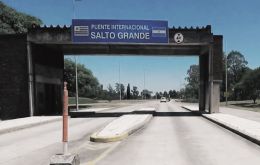
A study by the Catholic University of Uruguay's (UCU) Economic Observatory on the Salto Campus released this week showed that goods were once again much less expensive in Argentina. However, the difference was not as large as in previous years.
-
Wednesday, August 13th 2025 - 10:34 UTC
Argentine SMEs losing ground to imports
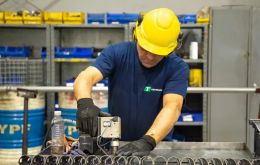
A report by the SME Observatory Foundation (FOP) warned that one-third of Argentina's small and medium-sized industrial enterprises (SMEs) were losing market share to imports. The study, which surveyed 407 companies, found that 45% of SMEs feel a growing threat from imported goods, the highest level since 2007.
-
Wednesday, August 13th 2025 - 09:47 UTC
Argentina: July's CPI projected below 2%
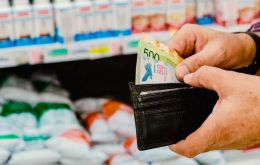
According to the Market Expectations Survey (REM) from Argentina's Central Bank (BCRA), which collects projections from consulting firms and research centers monthly, inflation in July is expected to be 1.8%, a slight increase from June's 1.6%. This figure is foreseen despite the dollar rising 14% during the same month.
-
Tuesday, August 12th 2025 - 10:05 UTC
Haddad's talks with Secretary of the Treasury called off - Was it due to pressure from US far right?
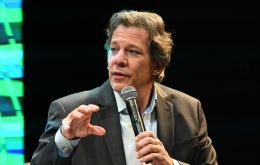
Brazilian Finance Minister Fernando Haddad announced Monday that his meeting with US Secretary of the Treasury Scott Bessent, scheduled for Wednesday, had been canceled. The minister claimed the decision was triggered by the US far right.
-
Tuesday, August 12th 2025 - 09:55 UTC
Lula and Xi Jinping discuss bilateral and global issues
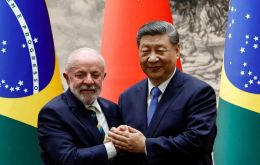
Presidents Xi Jinping of China and Luiz Inácio Lula da Silva of Brazil on Monday held a telephone conference, during which they discussed topics of mutual interest, as well as global issues. Both leaders agreed that China-Brazil relations were at an all-time high and planned to continue working together.
-
Tuesday, August 12th 2025 - 09:55 UTC
Paraguay's Lower House gives nod to Mercosur-Singapore FTA

Paraguay's Lower House on Monday approved the Free Trade Agreement between the South American Common Market (Mercosur) and Singapore signed in December 2023 in Rio de Janeiro. The deal had already been approved by the Senate. The understanding seeks to increase accessibility and transparency for businesses engaging in electronic transactions and public procurement.
